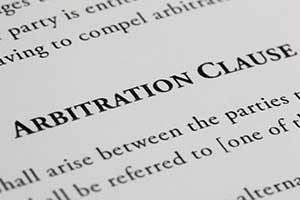A recent decision by the North Carolina Business Court (NCBC) re-affirmed long standing precedent that an arbitration award is customarily final and binding, even if it includes an error of fact or law.[1] In the most recent case, Killian/Simonini, LLC argued the arbitrator exceeded his authority by impermissibly including consequential and punitive damages in his award, which were not provided for in the arbitration clause of their operating agreement. Killian/Simonini further argued the North Carolina Limited Liability Act controls and limits the remedy for failure to make capital contribution payments to a LLC to the actual amount of the payments.[2] Therefore, they contended the…
-
-
North Carolina Business Court Weights in on Attorneys’ Fees in Class Action Settlements
Recent decisions by the North Carolina Court of Appeals and North Carolina Business Court (NCBC) shed light on a previously unsettled question of law: when can a North Carolina trial court award attorney’s fees as part of a class-action settlement in the absence of additional statutory authority? Long-standing precedent is that a court can award attorneys’ fees to a prevailing party when statutorily authorized to do so.[1] This practice is known as the “American Rule.” The intended purpose of the American Rule is to encourage the conservation of judicial resources by promoting settlement and discouraging unnecessarily prolonged litigation.[2] Regarding…
-
North Carolina Business Court Awards Rule 11 Sanctions for Second Time this Fall
The North Carolina Business Court recently entered Rule 11 sanctions against attorneys who relied on inaccurate information from their clients in preparing and filing lawsuits. The decision comes just two months after the NCBC awarded Rule 11 sanctions in a case with similar facts (which we summarized Here). In the most recent decision, the client, John Mauney, represented to his attorneys that he was a manager and member of NC Bioremediation, LLC, and therefore had authority to file a lawsuit on the company’s behalf.[1] In fact, Mauney was not, nor had he ever been, a member or manager…


